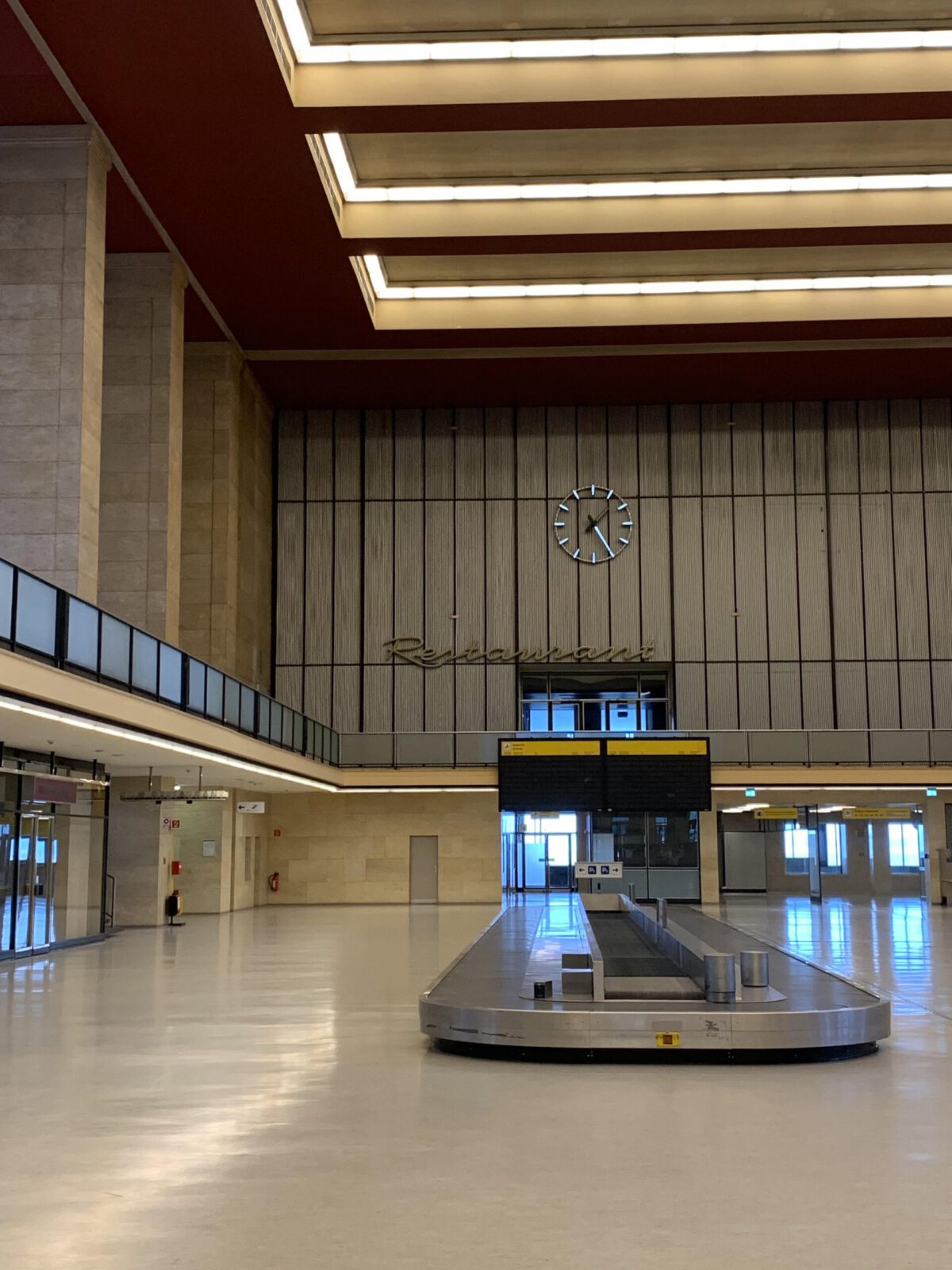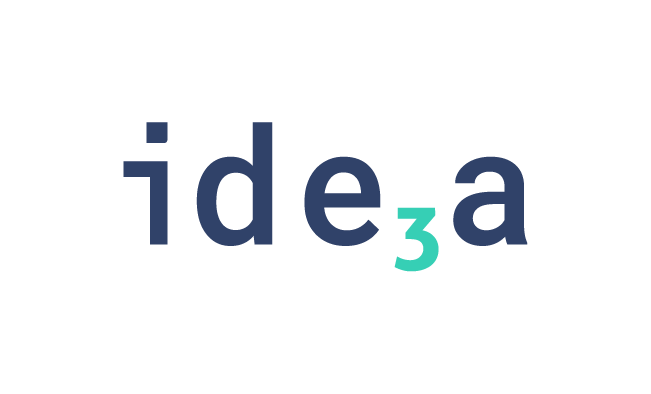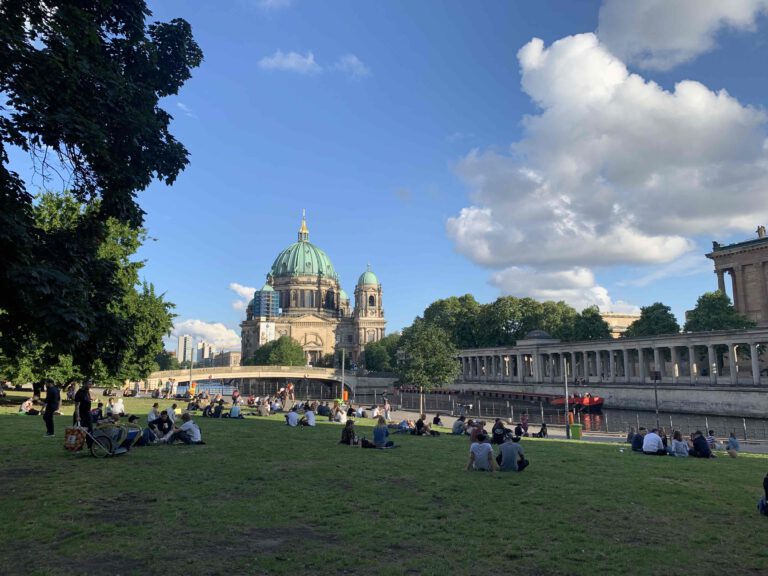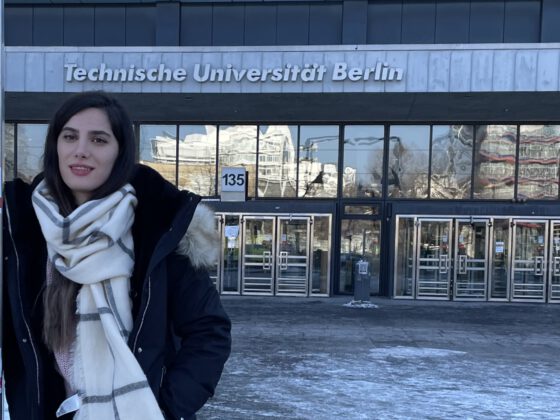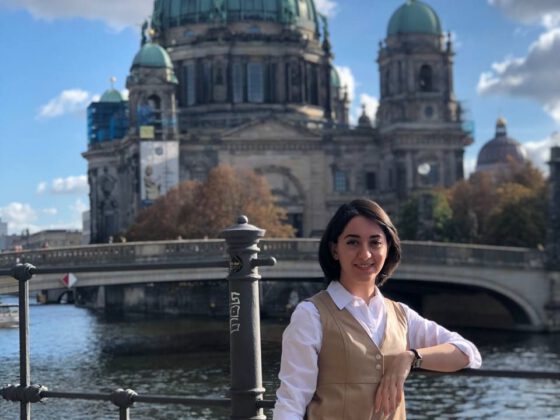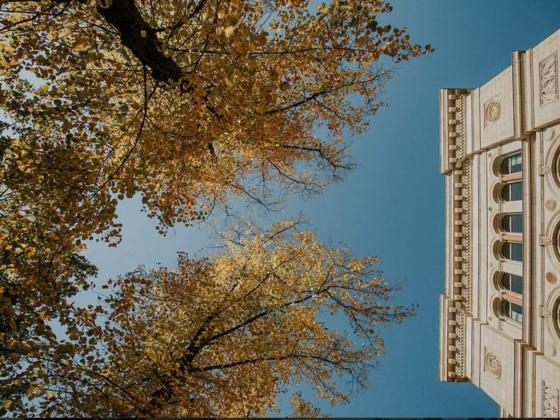Being a part of the ide3a scholarship was a great experience which made it possible for me to get to know better not only the academic environment but also the culture of the country. I was placed in the Department of Architecture & Civil Engineering which was also the department I studied in at my home university – Cracow University of Technology. I had the pleasure to be supervised by prof. Ignacio Borrego who gave me many important suggestions that were enriching my attitude towards the subject of my diploma project.
I consider the scholarship experience especially important for my work as the subject of my Diploma was the adaptation of the Flakturm IV bunker in Hamburg which I first saw during the workshop I was attending in this city. The subject of giving new life to such historic buildings is definitely one of the struggles that architects should face, as after all architectural intervention is also a tactile tool for shaping our sensitivity. Working with prof. Borrego made me realize how diverse the methods of dealing with the existing tissue can be. Analyzing and trying to understand the tough history of the building and specific characteristics of its surroundings were fundamental to really understand how complex the topic was. I also found it interesting to get to know many examples of the designs done by the architects I had not been familiar with that much.
Although different points of view are definitely of help if one wants to get to know what the final result is to be, I found it a little bit confusing to take into consideration both of the suggestions – my home university professor’s and the scholarship supervisor’s as they were rather different from each other.
Overall the supervision was a very interesting experience though as probably every student thinks it could have been more direct if not for the pandemics. Although the contact with the supervisor was limited to online meetings it was a great opportunity, nonetheless, to take the most from different architectural environments and seek my own approach. Also, it was hard at the beginning to find the right supervisor and stay in touch with the TU Berlin staff due to a hackers’ attack.
I also found the ide3a team helpful and, what is more, I really enjoyed the welcoming trip around the campus which made it easier for me to get to know the university.
To me, finding accommodation was not too hard as I already had some friends in the city who helped me to find a place to stay in, also the scholarship made it much easier to be able to afford living in another country where the costs of living are much higher than in my home country. Having this opportunity, I managed to deepen the knowledge of the country and the city. It was a great adventure to see many examples of interesting architecture from different times and grow interest in the heritage which I have mostly known beforehand from the books and magazines or the lectures.
I was really impressed by the campus and its openness towards students, even though the pandemics made it much harder to make full use of it. It was still a real difference to what is accessible and offered for the students at my home university. I also really enjoyed the architectural diversity of the different buildings at the campus! Again, the University was introduced in a very interesting way by the ide3a coordination team.
The thing that I would recommend to the next scholarship recipients and what was hard for me was to find a proper tutor, so it is really important to contact many professors at first and have the diploma topic already selected and then just be able to enjoy all the aspects of the stay without stress.
To put it in a nutshell, I am very happy to have been part of this great initiative that makes it possible to get to know another culture, academic environment and have the opportunity to make another city your home for a while.
